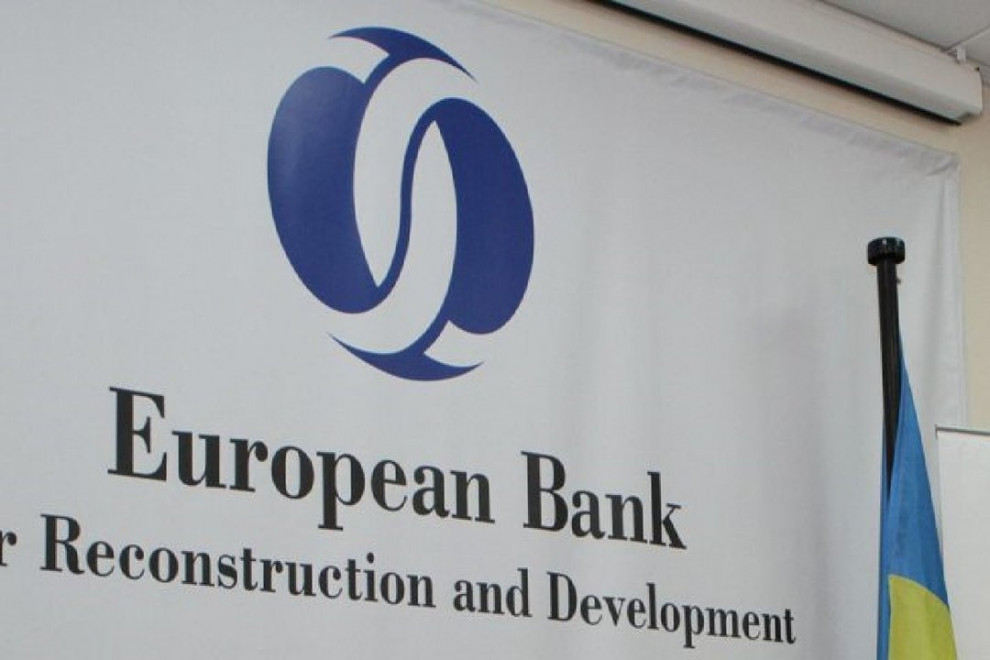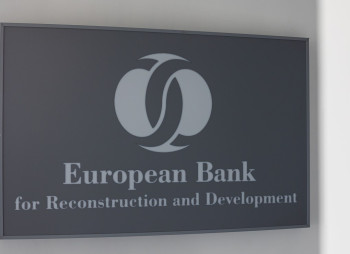- Over €1.1 billion invested in 51 new projects in Ukraine in 2019
- Public Transport Framework and Women in Business facilities launched
- Chernobyl New Safe Confinement mission accomplished
The EBRD surpassed the €1 billion-mark of new investments in Ukraine in 2019, scaling up its delivery on the back of the authorities’ renewed commitment to comprehensive reforms.
The Bank invested over €1.1 billion through 51 private and public sector projects in Ukraine, making it the second-largest economy for the Bank in terms of investments in 2019. This is also the largest number of transactions signed in a single country by the EBRD. €680 million of the total investments in 2019 were classified as green, which is the best result across all EBRD economies.
Matteo Patrone, EBRD Managing Director, Eastern Europe and the Caucasus, said: “I am very proud of my team and all colleagues across the Bank who contributed to this success. A unique combination of their professionalism, determination and passion made it happen. I am also grateful to our shareholders and their representatives on the Bank’s Board of Directors for their strong support of our activities throughout 2019. The EBRD is once again leading by example and assisting Ukraine in the areas where its resources and skills are needed most.”
The Bank’s engagement was comprehensive, deep and far-reaching. New investments included the support of landmark projects in public infrastructure, renewable energy, agribusiness and pharmaceuticals. The support of small and medium-sized enterprises (SMEs) also remains its strategic priority in Ukraine. In 2019 alone, under the EU4Business programme, the EBRD provided SMEs with direct financing worth almost €23 million. Almost €1.3 million were mobilised for 160 SME consultancy projects.
The EBRD also actively promoted reforms such as the establishment of independent supervisory boards at state-owned enterprises and banks, the support of the Ukraine Business Ombudsman Council, as well as advisory services for the transport, energy and agribusiness sectors. The Bank handed over the running of the New Safe Confinement in Chernobyl to the Ukrainian authorities, which marked the completion of the largest-ever international cooperation in nuclear safety. In the context of the Ukraine Reforms Architecture programme, the Bank continued its policy dialogue with key external stakeholders, including the government of Ukraine and international donors.
The Bank participated in bond issuances by the state-owned companies Naftogaz of Ukraine and Ukraine Railways, thus contributing to the development of the corporate bond market in the country.
The EBRD made a major investment of €149 million into the country’s power transmission system. The funds will help Ukrenergo upgrade its transmission infrastructure for synchronisation with European electricity networks.
Special attention was paid to the development of renewable power generation. The construction of a 57.6 MW solar plant in the Mykolaiv region was co-financed by the EBRD and the Black Sea Trade and Development Bank. A syndicated loan of €150 million loan supported the construction of a 250 MW windfarm in the Kherson region in southern Ukraine.
Ukraine’s capital Kyiv joined EBRD Green Cities, a framework for urban development, and will now develop an action plan to address environmental needs and to build a better and more sustainable future for the capital’s residents.
The Bank’s €250 million Ukraine Public Transport Framework II was launched and new energy efficient and ecologically friendly, low-floor trolley buses were delivered to the cities of Kharkiv, Lviv and Poltava.
Agribusiness remained among the Bank’s top priorities in Ukraine. A loan of US$ 35 million to Louis Dreyfus Commodities helped a leading merchant and processor of agricultural goods set up a railcar logistics business in Ukraine. Loans of US$ 48 million to Kernel Group and of US$ 12.5 million to Nyva Group helped industry leaders in the areas of renewable energy generation and waste management, respectively.
Investments into the domestic pharmaceutical sector were designed to boost research and development, promote innovation and best industry practices. These included loans of €15 million to Farmak and €25 million to Yuria-Pharm, which means smaller doses of cancer treatment will be available to patients.
Jointly with the EU, the EBRD launched the EU4Business-EBRD Credit Line to Ukraine to finance small businesses and help companies make the most of opportunities available under the Deep and Comprehensive Free Trade Agreement between the EU and Ukraine. The EBRD and the EU also organised a local currency lending programme for SMEs.
The EBRD Women in Business initiative was launched in Ukraine and Bank Lviv became its first local partner. The Bank also invested into Emerging Europe Growth Fund III, which will be making equity investments into export-oriented SMEs in Ukraine and Moldova.
In the general manufacturing sector, loans were extended to Kronospan UA (a syndicated loan of €116 million) for the construction of a new facility in Novovolynsk and to Unigran Group (€8.7 million) for the acquisition of a new transport fleet, including railcars and trucks.
Trade finance facilities for domestic companies seeking to expand their trade activities were signed with UkrGasBank and Pravex Bank.
The EBRD is a leading institutional investor in Ukraine and to date has committed more than €14.54 billion in over 460 projects to the country.




